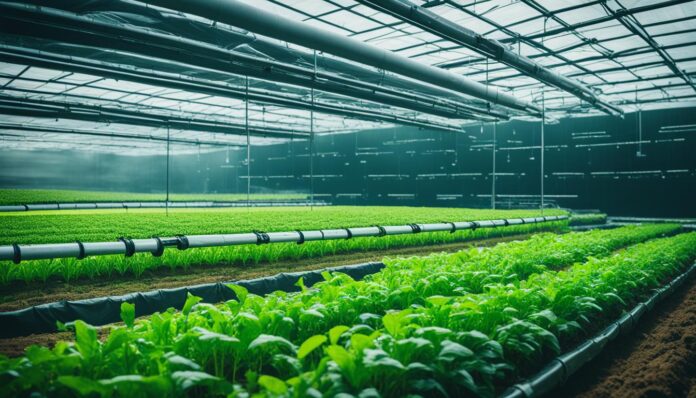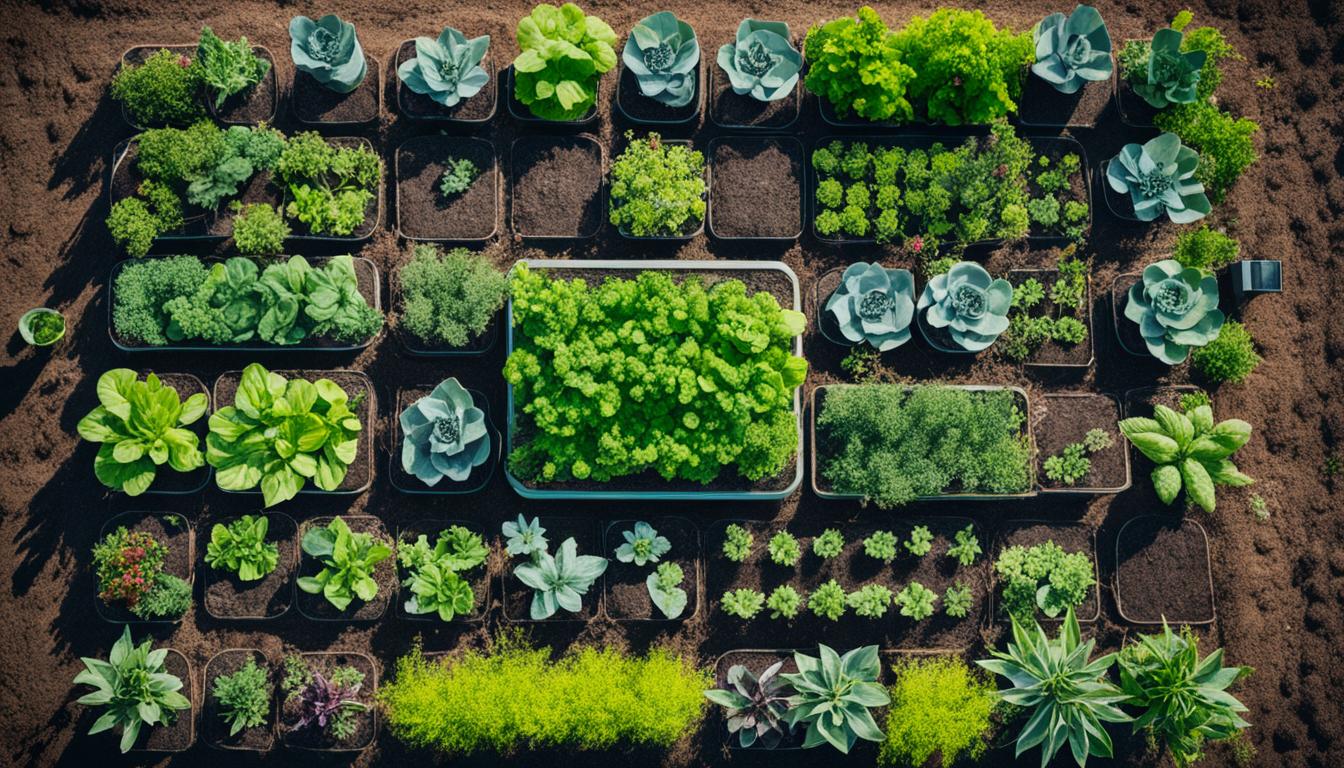
As a conscious consumer, you have the power to make a significant impact on the future of agriculture. The current industrial farming system is responsible for nearly a quarter of global greenhouse gas emissions, primarily from deforestation and emissions from livestock, soil, and nutrient management. Additionally, agriculture is the identified threat to 86% of species at risk of extinction and accounts for approximately 70% of all freshwater withdrawals globally. It’s clear that transformative action is needed to shift towards a more environmentally, economically, and socially sustainable agricultural system.
By embracing regenerative farming methods, agroforestry techniques, and water conservation strategies, you can support a more sustainable future for agriculture. Practices like carbon sequestration in soils, crop rotation systems, and eco-friendly pest management can help restore the health of our farmlands and the ecosystems they support. Additionally, the adoption of precision agriculture technologies can reduce resource use, costs, and pollution, further driving the transition towards a more sustainable agricultural system.
Key Takeaways
- Agriculture is responsible for a significant portion of global greenhouse gas emissions and environmental degradation.
- Transforming the current industrial agriculture system towards more sustainable practices is crucial.
- Embracing regenerative farming methods, agroforestry techniques, and water conservation strategies can support a more sustainable future.
- Practices like carbon sequestration in soils, crop rotation systems, and eco-friendly pest management can restore farmland health.
- Precision agriculture technologies can help reduce resource use, costs, and pollution in the agricultural sector.
Embracing Regenerative Farming Methods
In the quest to combat climate change and promote sustainable agriculture, embracing regenerative farming methods has emerged as a promising solution. These innovative practices not only aim to restore soil health but also enhance carbon sequestration in soils, enabling us to play a crucial role in mitigating the increasing atmospheric concentration of carbon dioxide.
Carbon Sequestration in Soils
Soils are among the planet’s largest reservoirs of carbon, yet one-third of farmland biodiversity has been degraded due to factors such as over-farming, over-cultivation, over-grazing, and forest conversion. This land degradation affects the carbon content of the soil and associated agroecosystems. By adopting regenerative farming methods and organic farming practices, we can help revitalize these soils and unlock their potential for carbon sequestration.
Crop Rotation Systems
Implementing crop rotation systems is a fundamental component of regenerative agriculture. These practices not only improve soil fertility but also enhance farmland biodiversity by promoting the natural cycling of nutrients and reducing the reliance on synthetic fertilizers. By diversifying crop production, farmers can build resilience within their agroecosystems and mitigate the risks associated with monoculture cultivation.
Agroforestry Techniques
Another key aspect of regenerative farming is the integration of agroforestry techniques, which combine the cultivation of trees and shrubs with traditional crop and livestock production. This approach not only enhances carbon sequestration in soils but also provides numerous additional benefits, such as improved farmland biodiversity, increased water infiltration, and the creation of microclimates that can benefit crop yields.

| Regenerative Farming Practices | Benefits |
|---|---|
| Carbon Sequestration in Soils | Mitigates atmospheric carbon dioxide levels, restores soil health |
| Crop Rotation Systems | Enhances soil fertility, promotes biodiversity, reduces reliance on synthetic inputs |
| Agroforestry Techniques | Increases carbon storage, improves water management, creates beneficial microclimates |
How can I support sustainable agriculture practices by 2025?
As you consider ways to support sustainable agriculture, exploring innovative farming practices can make a significant impact. Two key approaches to focus on are eco-friendly pest management and water conservation strategies. Additionally, leveraging the power of precision agriculture technologies can help optimize resource use and reduce environmental strain.
Eco-friendly Pest Management
Rather than relying on harsh chemical pesticides, you can support sustainable agriculture by promoting eco-friendly pest management techniques. This may involve incorporating organic farming practices that utilize natural predators, crop rotation, and targeted application of organic pesticides. By embracing these farmland biodiversity strategies, you can protect the delicate balance of ecosystems while effectively managing pests.
Water Conservation Strategies
Another crucial aspect of sustainable agriculture is water conservation. Current agricultural practices account for approximately 70% of global freshwater withdrawals, contributing to water scarcity and land degradation. You can support initiatives that promote water conservation strategies, such as precision irrigation systems, drought-resistant crop varieties, and water-efficient farming techniques. These measures can significantly reduce resource use and minimize the environmental impact of agriculture.
Precision Agriculture Technologies
Advancements in precision agriculture technologies offer exciting opportunities to enhance the sustainability of farming practices. By leveraging data-driven tools, such as GPS-guided equipment, remote sensing, and variable-rate application, you can help farmers optimize the use of inputs like water, fertilizers, and pesticides. This not only improves efficiency but also reduces costs and minimizes the environmental footprint of agricultural operations.
Conclusion
As you’ve seen, transforming our agricultural practices to become more sustainable is crucial for a brighter future. By embracing regenerative farming methods, harnessing the power of carbon sequestration in soils, implementing strategic crop rotation systems, and utilizing agroforestry techniques, you can play a pivotal role in promoting a healthier, more resilient farming landscape.
Equally important are eco-friendly pest management strategies, water conservation initiatives, and the adoption of precision agriculture technologies. These innovative approaches not only reduce resource consumption and environmental impact but also enhance the overall efficiency and profitability of your farming operations.
Remember, your commitment to sustainable agriculture practices by 2025 can have a lasting, positive impact on the planet, the communities you serve, and the generations to come. Together, let’s forge a path towards a more sustainable and prosperous agricultural future.
FAQ
How can agriculture impact the environment?
According to the information provided, agriculture is responsible for almost a quarter of global greenhouse gas emissions, primarily from deforestation and emissions from livestock, soil, and nutrient management. Agriculture is also the identified threat to 86% of species at risk of extinction and accounts for approximately 70% of all freshwater withdrawals globally.
How can we transform the current industrial agriculture system?
The article highlights the need to transform the current industrial agriculture system, which is not sustainable, toward a more environmentally, economically, and socially sustainable system. This can be achieved through innovative farming practices, such as precision agriculture technologies, that can help reduce resource use, costs, and pollution.
How can carbon sequestration in soil help mitigate climate change?
Carbon sequestration in soil has been suggested as a prospective way of mitigating the increasing atmospheric concentration of carbon dioxide. Soils are among the planet’s largest reservoirs of carbon, but one-third of farmland has been degraded due to factors such as over-farming, over-cultivation, over-grazing, and forest conversion. Improving soil carbon content can help address climate change.
What are some sustainable farming practices I can implement?
The article suggests several sustainable farming practices you can implement, including regenerative farming methods, crop rotation systems, agroforestry techniques, eco-friendly pest management, water conservation strategies, and precision agriculture technologies. These practices can help reduce resource use, costs, and pollution while supporting farmland biodiversity and promoting organic farming.
